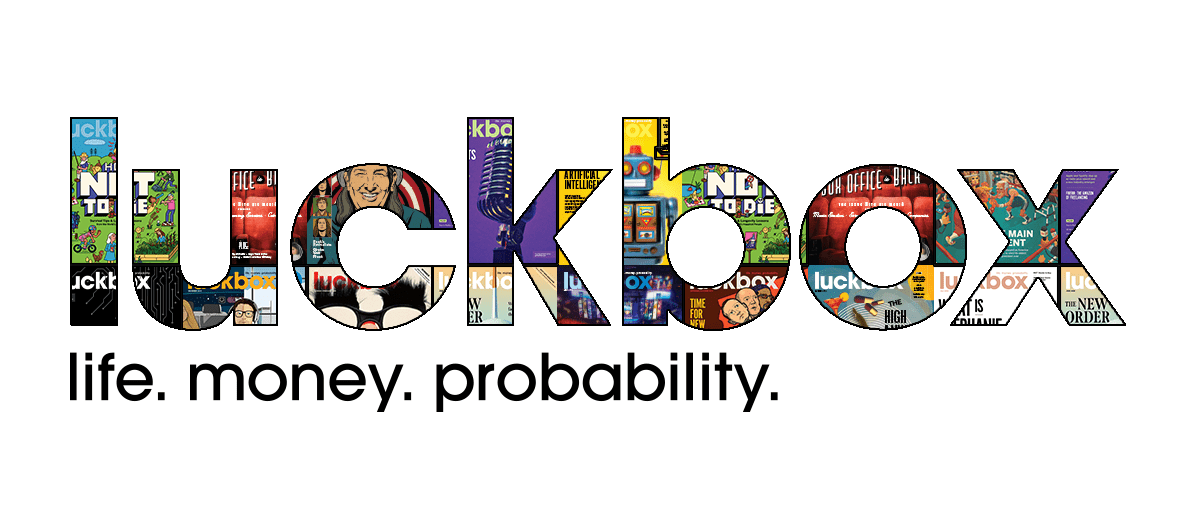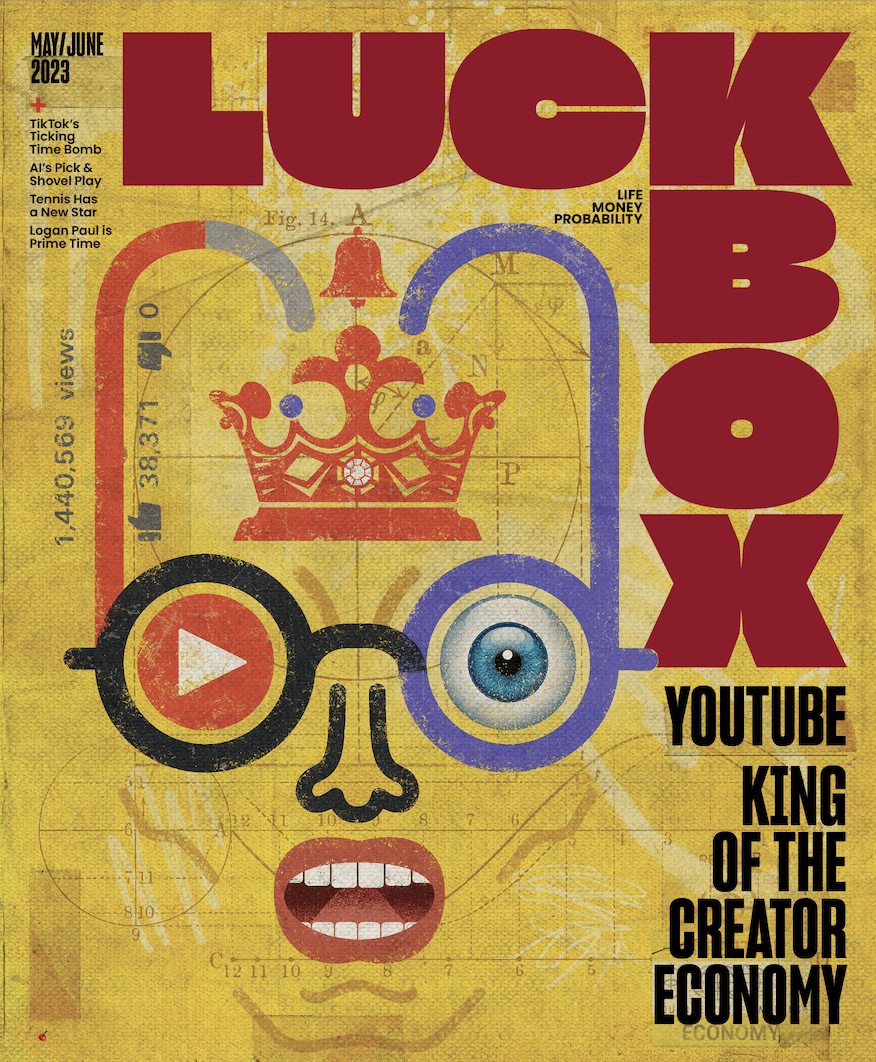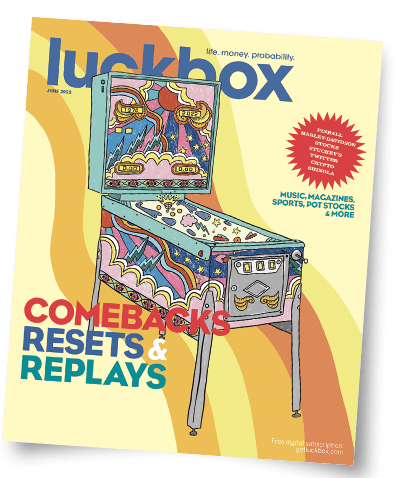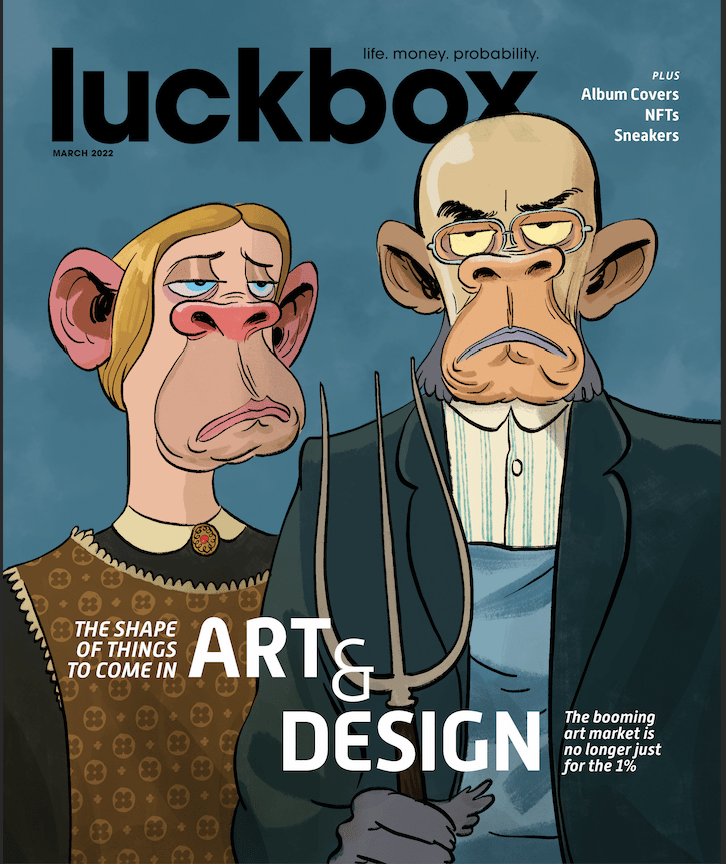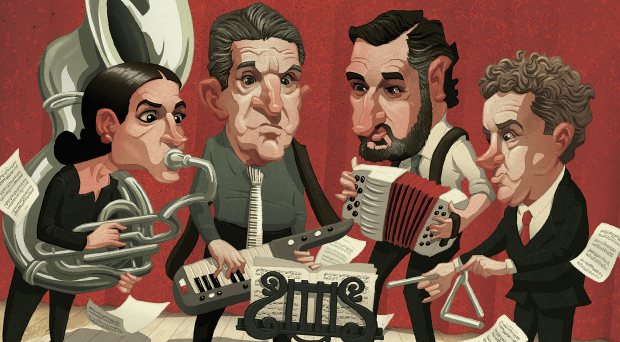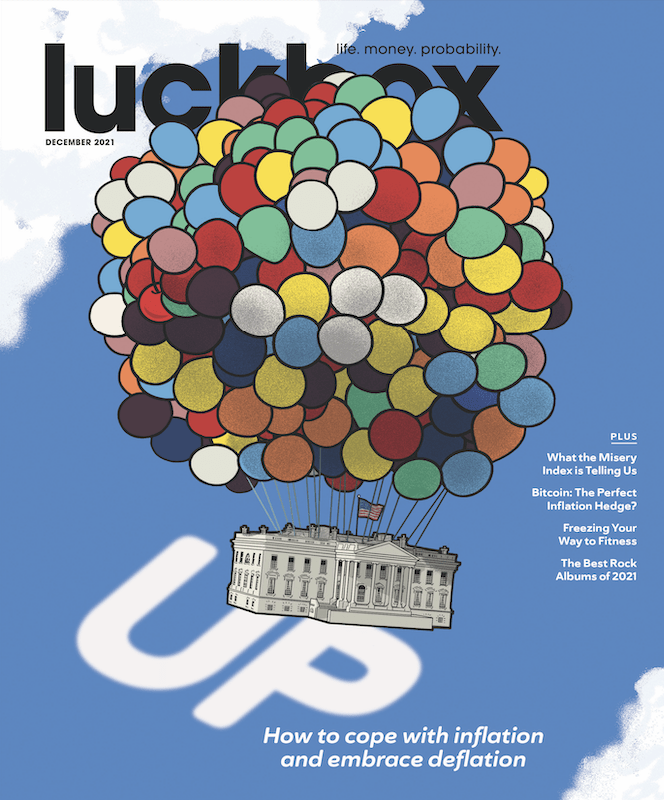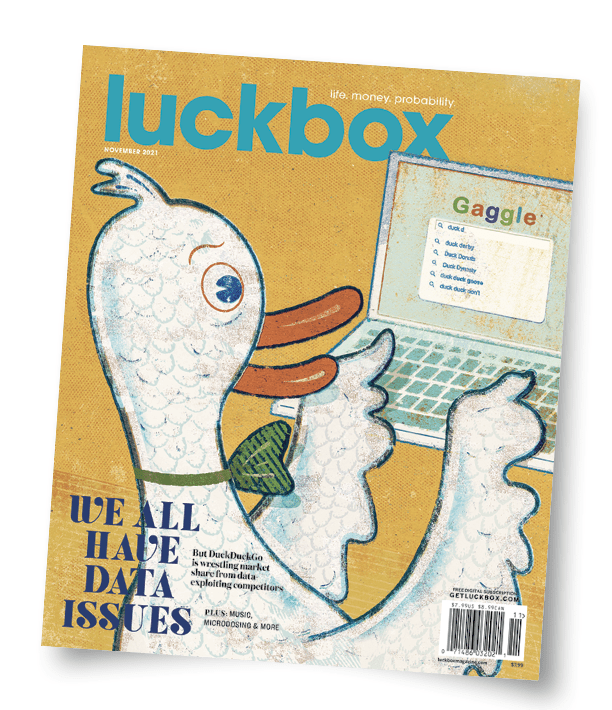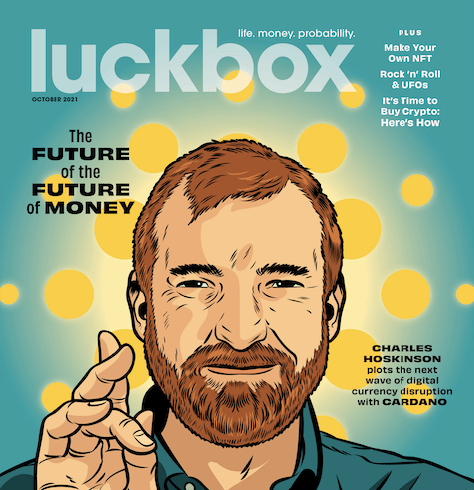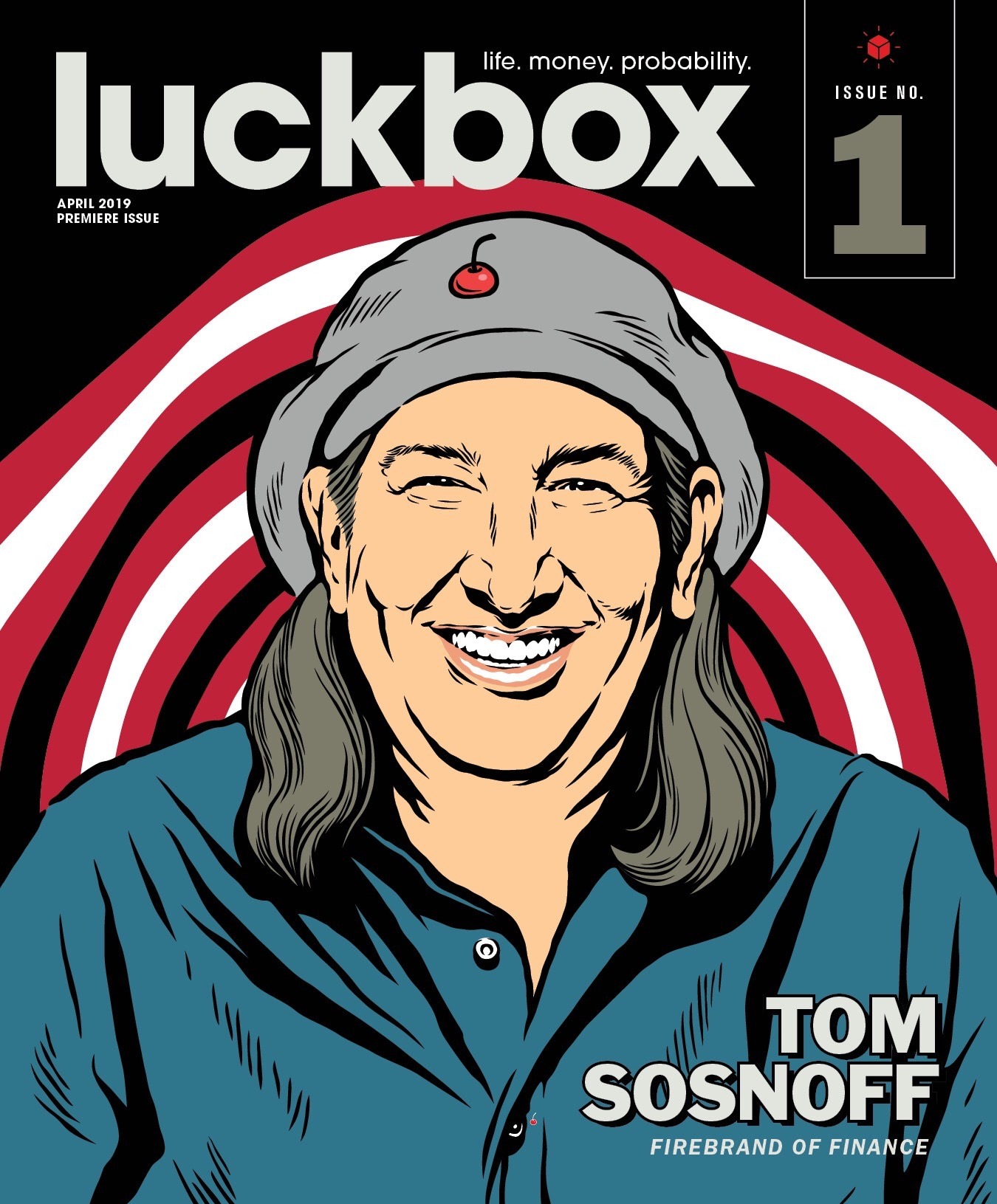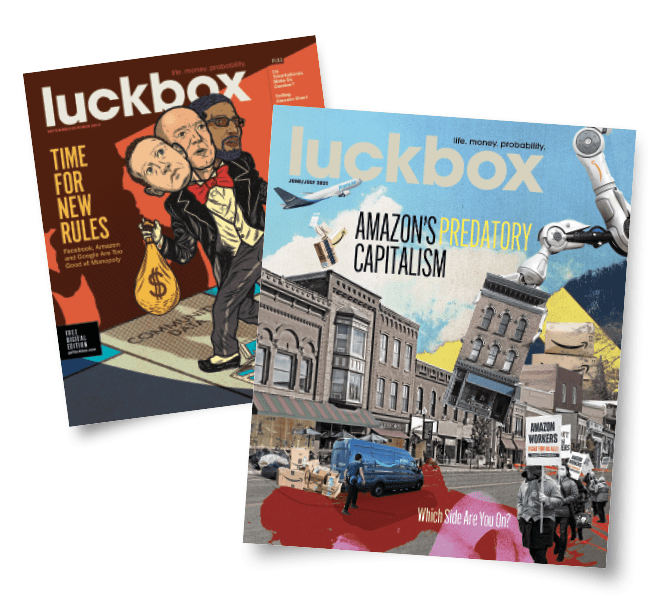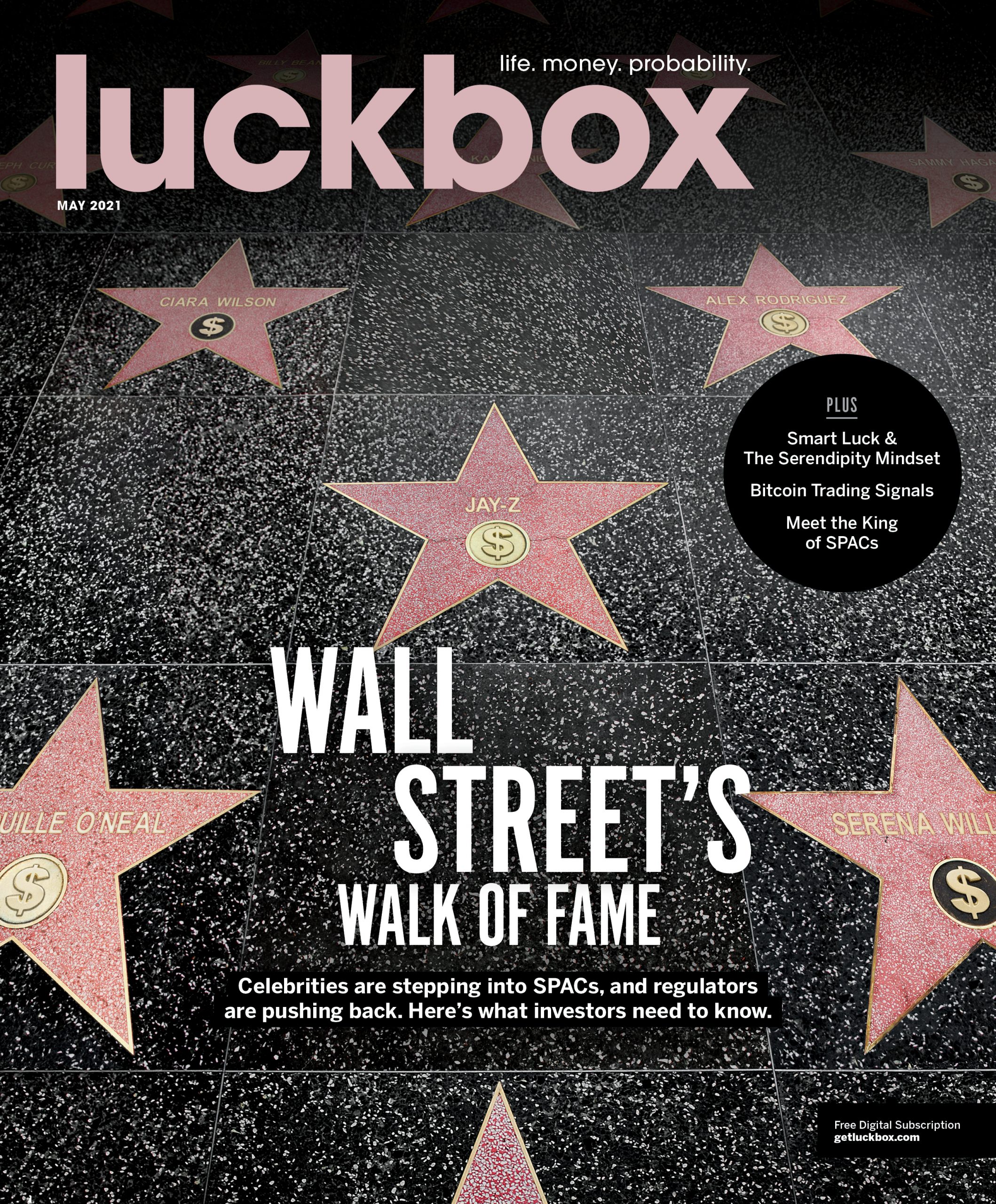THE ISSUE WITH GAMBLING
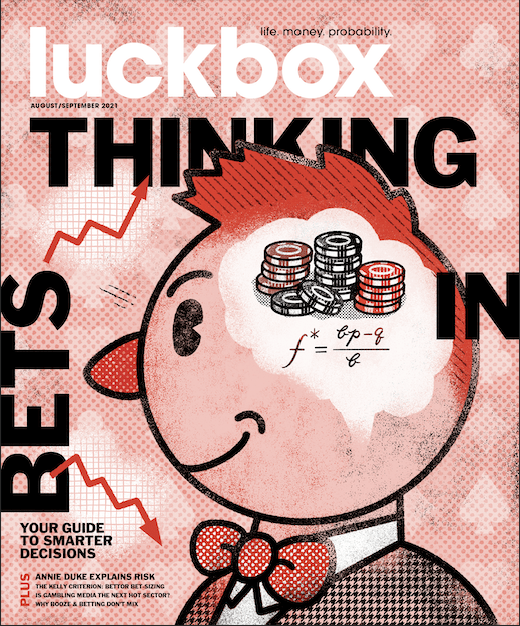
I’ve been to the table,
and I’ve lost it all before
I’m willin’ and able,
always comin’ back for more …
If I’m bettin’ on a loser,
I’m gonna have a devil to pay
But it’s the only game I know to play,
it doesn’t matter anyway
—A Good Run of Bad Luck, Clint Black (1993)
Luckbox is devoting this issue to gambling, even though the magazine’s annual survey recently indicated that nearly 43% of readers hadn’t placed a bet in the last 12 months.
It’s not that they’re tight-fisted or inactive—71% indicated they trade the financial markets at least once a week.
But in the last year, nearly half hadn’t stepped inside a casino, pulled a chair up to a poker table, dabbled in the online prediction markets or gone online to play a game for money. They hadn’t even bought a ticket to a lottery or a raffle.
Yet, that didn’t stop Luckbox from producing a gambling-oriented issue. In fact, this edition is graced with a five-page report on sports betting—even though the survey found that 84% of the readership hadn’t wagered a penny on sports in the last year.
So what’s going on here?
Well, it so happens that the cognitive tactics, discipline and bet-sizing techniques that can turn an amateur gambler into a pro can also transform a neophyte trader into a market wizard. Many examples of what optimized strategies for gambling and investing have in common come from the game of poker.
Traders and poker players have to make rapid repeated decisions based on incomplete information. That’s why members of both groups should learn to recognize and act upon probability instead of emotion.
Whether they’re playing cards or playing the market, anyone hoping to succeed should review the quality of his or her decision-making processes when faced with a variety of potential outcomes. They should realize that good choices can have bad results because of randomness and luck. And they can truly learn all of this by thinking in bets.
Poker and investing intertwine for many of the authors, academicians, gamblers and investors who contributed their thoughts to this issue of Luckbox. Some began as gamblers and turned into investors. Others took the opposite path.
However they arrived at their destinations, hyphenated gambler-investors advocate playing poker as a foundation for making better decisions with money and in life in general. Some of the contributors write books about intermingling the two pursuits, while others go so far as to teach young women to play poker as preparation for college and the world of business.
So, this Issue with Gambling serves as another lens Luckbox can use to view the preoccupations of probability, bet-sizing and luck in financial, professional and personal pursuits.
Click here to read the latest issue.
Ed McKinley
Editor in Chief

